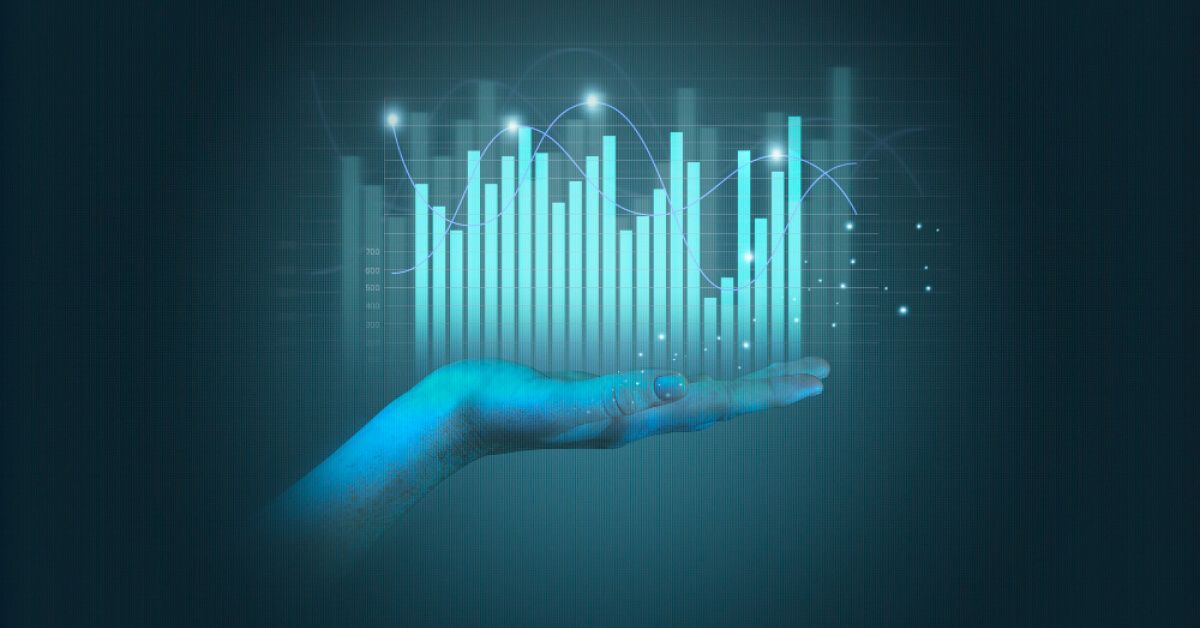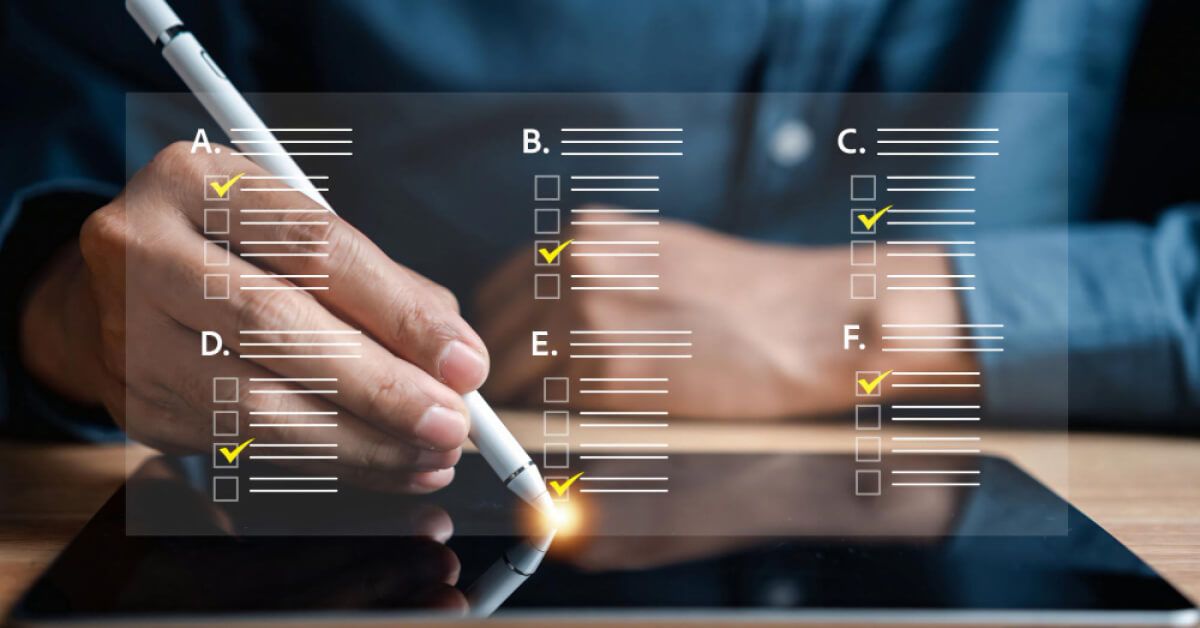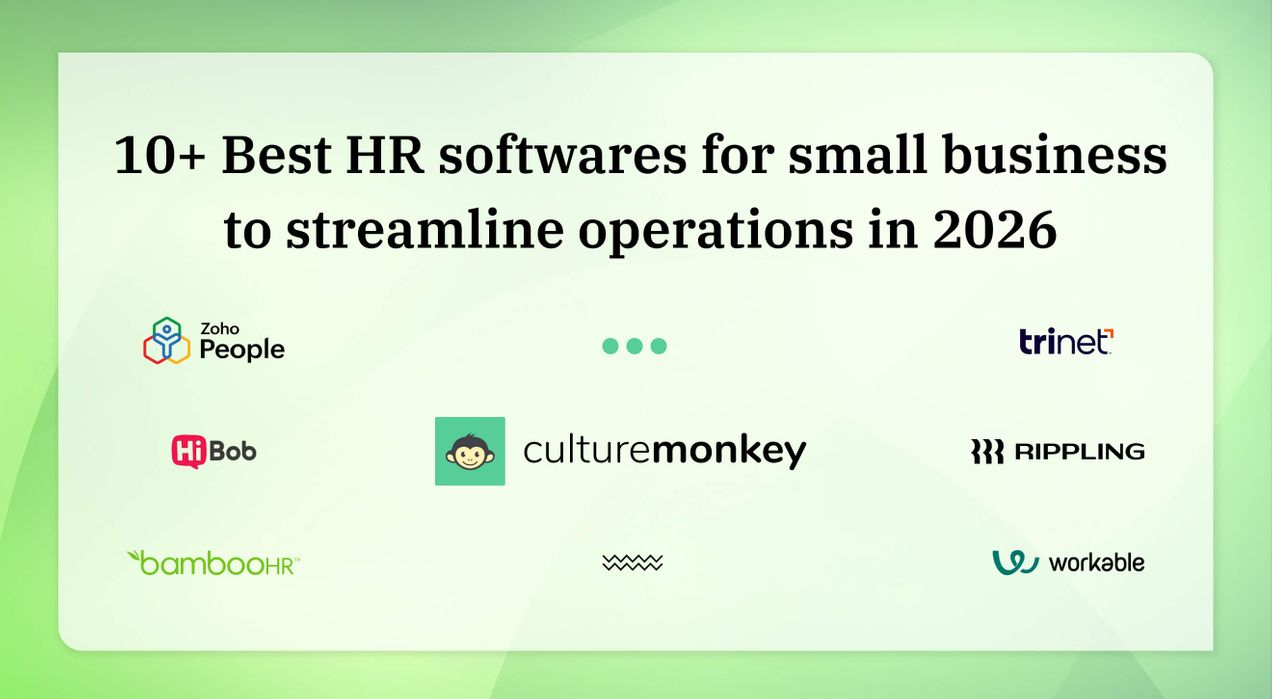Who are the top HR Influencers in 2025 and why you should follow them

Picture this: It’s the early 2000s, and Blackberry is the king of mobile devices. Businesses swear by it, professionals can’t live without it, and it seems untouchable. Then along comes the iPhone—game-changing, innovative, and aligned with where technology is heading. Blackberry didn’t adapt, and well... we all know how that ended.
Now, think of your HR strategy the same way. What worked five years ago won’t cut it in 2025. The workplace is evolving—AI-driven hiring, hybrid models, employee well-being, and diversity initiatives are no longer “nice-to-haves.” They’re business essentials. This is where HR influencers step in. These experts aren’t just talking about trends; they’re predicting the shifts that will define the future of work.
Whether it’s a young HR influencer on LinkedIn sharing fresh perspectives or a seasoned leader redefining talent strategies, following them ensures you stay ahead. So, who are the top HR influencers shaping 2025? Let’s dive into the list of HR thought leaders you should know.
Who is an HR influencer?

An HR influencer is a thought leader who shapes conversations, strategies, and innovations in the field of the human resource management and resources. These individuals use their expertise to guide chief people officer, business leaders, and organizations toward better people management, workplace culture, and talent development. Whether through research, social media, speaking engagements, or consulting, they influence how companies attract, retain, and engage employees in a rapidly evolving work environment.
Unlike traditional HR professionals who work behind the scenes, HR influencers have a public presence. Many of them share insights on platforms like LinkedIn, podcasts, and industry conferences, offering real-time solutions to modern workplace challenges.
Whether discussing AI-driven recruitment, employee well-being, or diversity and inclusion, they help HR teams stay ahead of the curve. Following an HR influencer on LinkedIn can provide businesses with up-to-date trends and best practices that drive meaningful change.
From young HR influencers introducing fresh perspectives to established experts redefining workforce strategies, these professionals play a crucial role in shaping the future of work. Their influence extends beyond HR departments—impacting leadership decisions, employee experience, and business outcomes. As organizations navigate the complexities of a digital-first, employee-centric world, the insights of top HR influencers have never been more valuable.
Why should you follow the HR influencers?

Staying ahead in HR isn’t just about policies and payroll—it’s about understanding the evolving workforce. HR influencers provide expert insights, helping businesses adapt, innovate, and build better workplaces. Here’s why following them is a game-changer:
Stay updated on trends
The HR landscape is changing rapidly with AI, remote work, and DEI initiatives. Top HR influencers analyze these trends, providing actionable insights that help businesses stay competitive and future-ready. Their expertise ensures you’re not just reacting to change but anticipating it.
Learn proven strategies
Whether it’s improving employee engagement, optimizing recruitment, or handling workplace conflicts, HR influencers on LinkedIn share real-world strategies that drive results. These insights come from years of experience and extensive research, helping HR teams make informed decisions.
Enhance employer branding
In today’s job market, reputation matters. Young HR influencers and industry veterans alike provide tips on strengthening employer branding, making companies more attractive to top talent. Their strategies focus on workplace culture, leadership, and employee experience.
Gain leadership insights
Understanding workforce dynamics is crucial for business success. Best human capital management and resources experts offer insights into leadership development, talent management, and organizational growth, helping businesses build strong, people-centric cultures.
Expand your professional network
Engaging with HR influencers on LinkedIn connects you to industry leaders, recruiters, and decision-makers. These connections open doors to collaborations, mentorship opportunities, corporate learning together, and valuable discussions on shaping the future of work. They can also help you know the latest influencer marketing metrics and how they can grow your business with this strategy. For example, HR professionals looking to build brand visibility through niche content often explore micro influencer brand deals, which offer targeted engagement and authentic reach within specific professional communities.
Understanding the role of HR influencers

HR influencers do more than just share opinions—they shape the way businesses and organizations approach talent acquisition, culture, and leadership. Their expertise helps companies navigate workplace challenges, adopt new strategies, and stay competitive. Here’s how they make an impact:
- Driving HR innovation: From AI-driven recruitment to hybrid work models, HR influencers on LinkedIn introduce cutting-edge ideas. Their insights help businesses modernize HR practices and stay ahead of workforce trends.
- Bridging the gap between HR and leadership: Many organizations struggle with aligning HR and business goals. Top HR influencers provide strategies that help HR professionals and executives work together for better talent management and organizational growth.
- Shaping workplace culture: A strong workplace culture boosts retention and engagement. Influencers share research-backed methods to improve leadership, communication, and inclusivity, helping companies create a thriving work environment.
- Providing data-driven insights: Workforce analytics play a huge role in HR decisions. Chief human resources officers decode HR metrics, offering insights on employee performance, well-being, and turnover trends to improve decision-making.
- Championing diversity and inclusion: HR influencers advocate for equitable workplaces by highlighting the importance of diverse hiring, inclusive policies, and bias-free leadership, making workplaces more welcoming and fair.
- Educating HR professionals: Whether through articles, webinars, or online courses, influencers equip HR teams with skills and strategies to handle emerging challenges. Their content keeps HR professionals informed and prepared.
- Influencing global HR policies: Many list of HR experts collaborate with organizations and policymakers to shape labor laws, workplace standards, and ethical HR practices, impacting workplaces worldwide.
What are the qualities of a good HR influencer?

Not all HR influencers are created equal—some stand out because of their expertise, credibility, and ability to inspire change. A good HR influencer on LinkedIn doesn’t just share insights; they actively shape the future of work. Here are the key qualities that set them apart:
- Deep HR expertise: A strong foundation in HR, from talent management to organizational psychology, is essential. Top HR influencers bring years of experience and research-backed insights, making their advice reliable and actionable.
- Strong communication skills: The best influencers break down complex HR topics into clear, engaging content. Whether through blogs, videos, or keynotes, they make HR knowledge accessible to professionals at all levels.
- Adaptability to changing trends: Workplaces evolve rapidly, and best human resources experts stay ahead by analyzing new trends. From AI in recruitment to remote work policies, they provide timely insights that help businesses stay competitive.
- Passion for people and culture: A true HR influencer on LinkedIn isn’t just about policies—they care about building better workplaces. Their insights focus on employee well-being, leadership development, and creating an inclusive work environment.
- Strong online and offline presence: Great influencers engage with their audience through social media, podcasts, and industry events. They actively participate in discussions, mentor HR professionals, and contribute to shaping HR best practices.
Benefits of HR influencers

HR influencers do more than share insights—they help businesses and professionals stay ahead in the ever-evolving world of work. By following top HR influencers, companies can improve their people strategies and build stronger workplace cultures. Here’s how they add value:
1. Keeping HR professionals informed
The corporate HR landscape constantly evolves with new laws, AI advancements, and workplace trends. HR influencers on LinkedIn simplify complex updates, ensuring HR teams remain well-informed and proactive in their decision-making.
2. Enhancing employee engagement
A disengaged workforce leads to higher turnover and lower productivity. Influencers provide research-backed strategies on leadership, communication, and recognition, helping organizations foster a workplace where employees feel valued and motivated.
3. Helping businesses attract top talent
Employer branding is crucial in today’s job market. The best human resources experts share insights on how businesses can improve their hiring process, craft compelling job offers, and create an environment that appeals to high-caliber candidates.
4. Driving innovation in HR practices
From AI-driven recruitment to data-based workforce planning, influencers introduce fresh, forward-thinking ideas. Their expertise helps companies modernize HR strategies and implement cutting-edge solutions that keep them ahead of competitors.
5. Strengthening workplace culture
A strong culture leads to higher job satisfaction and better business performance. Influencers offer practical advice on leadership development, diversity initiatives, and team collaboration to create a thriving, people-first workplace.
6. Providing networking opportunities
Engaging with the HR community and influencers on LinkedIn connects professionals with thought leaders, recruiters, and HR executives. These connections open doors to new job opportunities, collaborations, and mentorship in the HR field. Some organizations also turn to agencies for micro influencers to reach niche professional communities and enhance their employer branding efforts.
7. Shaping future HR policies
Many top name HR practitioners and influencers contribute to shaping workplace regulations, ethical labor practices, and diversity policies. Their advocacy influences how businesses create fair, inclusive, and legally compliant work environments.
Criteria for selecting the top HR influencers

Not every HR professional qualifies as an influencer. The best HR influencers on LinkedIn are those who bring real value, challenge outdated practices, and shape the future of work. Here are seven key criteria for selecting them:
- Industry expertise: Influencers should have deep HR knowledge, backed by experience in talent management, employee engagement, or leadership development. Their insights must be practical and research-driven.
- Thought leadership: The best influencers don’t just repeat HR trends—they challenge norms and introduce fresh perspectives. Top HR influencers shape discussions on the future of work and workplace transformation.
- Content quality and engagement: A great influencer produces high-value content, whether through articles, podcasts, or webinars. Their ability to spark discussions and engage their audience is a key indicator of their impact.
- Strong professional network: Influencers with a solid list of HR connections collaborate with industry experts, policymakers, and business leaders. Their network amplifies their reach and credibility.
- Impact on workplace culture: The best young HR influencer LinkedIn profiles isn’t just popular—they contribute to improving workplace culture, diversity, and employee well-being through actionable insights and strategies.
- Innovation and adaptability: The HR field is constantly evolving, and top influencers stay ahead of the curve. They explore trends like AI in HR, remote work policies, and data-driven decision-making.
- Recognition and credibility: Influencers who speak at global HR events, publish in reputable journals, or advise top companies have proven credibility. Their expertise is acknowledged by the best human resources professionals worldwide.
List of top HR influencers for 2025

The HR world is evolving rapidly, and these top HR influencer LinkedIn profiles are leading the way. Whether it’s HR tech, data-driven insights, or workplace culture, their contributions are shaping the future of work. Here’s why you should follow them:
Josh Bersin
A globally recognized HR analyst, Josh Bersin is known for his deep research into HR technology, leadership, and talent management. His insights help companies adapt to workforce changes and implement cutting-edge HR strategies. Through his company, The Josh Bersin Company, he provides research-backed recommendations to improve employee experience and business outcomes.
Tom Haak
As the founder of the HR Trend Institute, Tom Haak focuses on emerging HR innovations, particularly in AI and automation. He emphasizes the power of data-driven personalization in HR, helping companies create tailored employee experiences. His trend analyses help businesses stay ahead of workforce shifts and adopt progressive HR practices. He is widely recognized for identifying disruptive trends in the industry.
David Green
A leading expert in people analytics, David Green explores how HR can use data to drive better business decisions. He frequently shares insights on workforce analytics, AI-driven HR strategies, and the future of work. His work helps HR leaders build stronger, evidence-based decision-making frameworks. He is also a keynote speaker and writer, influencing HR professionals worldwide.
John Boudreau
An a HR consultant, thought leader and professor, John Boudreau focuses on organizational effectiveness, leadership, and the future of work. His research helps businesses navigate workforce transformations and develop agile HR strategies. He emphasizes how companies can optimize their talent management processes for long-term success. His work has influenced corporate leaders and policymakers in redefining HR strategies.
Albert Loyola
A specialist in AI-driven HR strategies, Albert Loyola is passionate about how technology enhances employee experience and HR operations. His insights focus on integrating AI, automation, and digital transformation into HR workflows. He helps companies understand how machine learning can improve talent management and decision-making. Through his work, he enables HR leaders to stay competitive in a fast-changing landscape.
Chris Havrilla
Chris Havrilla is an HR tech expert with extensive experience in talent strategy and digital transformation. She advises companies on how to modernize HR functions using AI, analytics, and automation. Her work emphasizes creating adaptable, future-ready HR ecosystems. She regularly shares insights on leadership, workforce planning, and technology’s role in shaping the employee experience.
Johannes Sundlo
A rising HR influencer, Johannes Sundlo focuses on practical, real-world HR strategies that enhance workplace efficiency. He is known for his expertise in digital HR transformation and workforce analytics. His work bridges the gap between HR theory and actionable solutions that drive business success. His content resonates with HR professionals looking for pragmatic, data-driven approaches.
Al Adamsen
A leader in HR analytics, Al Adamsen helps organizations harness data for workforce planning and talent optimization. His expertise in people analytics enables HR professionals to make smarter hiring and retention decisions. He is a sought-after speaker and consultant, guiding businesses through data-driven HR transformations. His insights have influenced major organizations in adopting more strategic HR approaches.
Marc Coleman
As a global HR and leadership expert, Marc Coleman focuses on workplace culture, digital HR, and leadership innovation. He frequently discusses how businesses can create human-centered work environments through technology and strategy. He is the founder and ceo of UNLEASH, a major HR event that brings industry leaders together. His work connects HR professionals with the latest industry trends and innovations.
Anita Lettink
A futurist and HR tech expert, Anita Lettink explores the intersection of work, technology, and automation. She shares insights on the future of work, helping businesses prepare for digital transformation. Her expertise lies in payroll, talent mobility, and workforce strategies. She is an influential voice in shaping discussions about HR’s role in the new world of work.
Steve Boese
Co-chair of the HR Technology Conference, Steve Boese is a leading expert in HR tech trends and innovations. He helps organizations understand the impact of emerging technologies on HR functions. His podcasts and articles provide valuable insights into HR digitalization and workforce transformation. He is highly regarded for his deep understanding of the HR technology landscape.
Meghan Biro
A well-known HR strategist, Meghan Biro focuses on employer branding, talent acquisition, and workforce engagement. She is the founder of TalentCulture and frequently shares insights on leadership and workplace innovation. Her expertise helps businesses create strong company cultures that attract and retain top talent. She is also a prominent speaker and podcast host in the HR space.
Laurie Ruettimann
A former HR leader turned author and speaker, Laurie Ruettimann is known for her honest, no-nonsense approach to HR. She advocates for better work environments, focusing on employee well-being and workplace fairness. Her insights help HR professionals challenge outdated practices and embrace modern HR strategies. She is also a best-selling author and podcast host, bringing fresh perspectives to HR topics.
Adam Posner
A talent acquisition and career development expert, Adam Posner specializes in employer branding and recruitment strategies. He shares practical advice on networking, job searching, and career growth. His insights are valuable for both HR professionals and job seekers navigating the modern workforce. He is also a podcast host, featuring top industry leaders in talent and HR.
Carrie Corbin
Carrie Corbin is an HR leader focused on diversity, equity, and inclusion (DEI) in the workplace. She helps organizations build more inclusive hiring practices and foster diverse workplace cultures. Her expertise in employer branding also helps companies create strong, appealing work environments. She is a well-respected voice in HR leadership and talent strategy.
Claude Silver
As the Chief Heart Officer at VaynerMedia, Claude Silver is a champion of workplace culture and emotional intelligence. She focuses on creating people-first work environments that foster empathy and connection. Her leadership philosophy centers on employee well-being and positive organizational change. She is a widely respected HR influencer advocating for human-centered leadership.
How to become an HR expert?

The HR field is dynamic, requiring a mix of education, experience, and adaptability. Becoming an HR expert means mastering employee relations, workplace policies, and evolving business needs. Here are key steps to help you build a strong HR career.
- Earn a relevant degree: A degree in HR, business, or psychology lays the foundation for understanding workforce management. Courses in employment law, organizational behavior, and talent management help develop essential HR skills. A strong academic background enhances your credibility in the field.
- Gain hands-on experience: Internships and entry-level HR roles help you understand real-world HR operations. Working in areas like recruitment, payroll, or employee engagement builds practical knowledge. Exposure to workplace challenges refines your problem-solving abilities.
- Develop strong communication skills: HR professionals need excellent verbal and written communication skills to interact with employees and leadership. Handling conflicts, conducting interviews, and drafting policies require clear and empathetic communication. Strong interpersonal skills build trust within an organization.
- Stay updated with HR trends: HR laws, workplace dynamics, and technology are constantly evolving. Following HR influencers, attending webinars, and reading industry reports keep you informed. Staying ahead of trends ensures you can implement best practices in your organization.
- Obtain professional certifications: Certifications like SHRM-CP, PHR, or CIPD add credibility and showcase specialized HR knowledge. These credentials help HR professionals stand out in a competitive job market. Continuous learning through certifications strengthens career growth.
- Build a strong HR network: Connecting with HR professionals through LinkedIn, conferences, or industry events provides learning opportunities. Engaging in discussions and seeking mentorship helps you gain industry insights. A solid network can open doors to career advancements.
- Master HR technology and analytics: Modern HR relies on HRIS systems, AI-driven recruitment, and people analytics. Learning HR tech tools improves efficiency in talent management and workforce planning. A data-driven approach enhances decision-making and HR strategy development.
Tips to engage with HR influencers

Engaging with HR influencers helps you stay updated on industry trends and build valuable connections. A strategic approach ensures meaningful interactions rather than just passive following. Here’s how you can effectively connect with top HR industry influencers.
- Engage with their content regularly: Like, comment, and share their posts on LinkedIn and other platforms. Thoughtful engagement increases visibility and starts conversations. Adding insights or asking questions makes your interactions stand out.
- Join HR discussions and webinars: Many HR influencers host live sessions, podcasts, or online panels. Actively participating in discussions helps you learn and get noticed. Asking relevant questions or sharing your perspective builds rapport.
- Leverage LinkedIn for direct networking: Send a personalized connection request instead of a generic one. Mention a post or article they shared that resonated with you. A genuine introduction increases your chances of starting a conversation.
- Contribute valuable insights: If you’re in HR, share your expertise through comments, blog posts, or LinkedIn articles. Influencers notice those who contribute to discussions meaningfully. Thought leadership attracts attention from the best human resources professionals.
- Attend industry events and conferences: Meeting HR influencers in person at HR summits or networking events strengthens connections. Introduce yourself and discuss industry topics that align with their expertise. Face-to-face interactions leave a lasting impression.
Conclusion
HR influencers shape the future of workplace culture, leadership, and talent management. Following them provides insights into best human resources practices, emerging trends, and innovative strategies.
Whether you’re an HR professional, a human resource executive magazine or a business leader, engaging with top HR influencers helps you stay ahead in an ever-evolving industry.
Building connections with industry experts, attending discussions, and staying informed can transform your approach to HR. But beyond influencers, having the right tools is just as important. CultureMonkey helps organizations enhance employee engagement through real-time feedback and data-driven insights.
FAQs
1. What makes an HR influencer effective?
An effective HR influencer shares actionable insights, stays updated on industry trends, and engages with their audience. They provide data-driven strategies, challenge outdated HR practices, and advocate for innovation. Their expertise spans talent management, employee engagement, and workplace culture, making their content valuable for HR professionals and business leaders looking to improve organizational success.
2. How do HR influencers impact professional growth?
HR influencers provide thought leadership, career advice, and industry updates that help professionals stay competitive. Their content includes case studies, best practices, and expert insights that enhance HR knowledge. Engaging with them through discussions, articles, and events allows professionals to expand their network, gain new perspectives, and implement modern HR strategies for career advancement.
3. What should HR teams do after following HR influencers?
HR teams should actively apply the insights gained from HR influencers to improve workplace policies and strategies. Engaging with their content, discussing trends internally, and implementing best practices help drive meaningful change. Teams can also use platforms like CultureMonkey to measure the impact of new HR initiatives, ensuring continuous improvement in employee engagement and organizational growth.
4. Can HR influencers help improve workplace culture?
Yes, HR influencers share innovative approaches to leadership, diversity, and employee engagement, directly influencing workplace culture. Their insights on mental well-being, work-life balance, and company policies help organizations create more inclusive and productive environments. By adopting these strategies, HR professionals can foster positive workplace relationships and drive cultural transformation that benefits both employees and employers.
5. How do I choose the right HR influencers to follow?
Selecting the right HR influencers depends on your professional goals and interests. Look for thought leaders who share expertise in areas like talent management, HR tech, or employee experience. Assess their credibility based on industry recognition, audience engagement, and content quality. Following top HR influencers on LinkedIn ensures you gain relevant and impactful insights.










